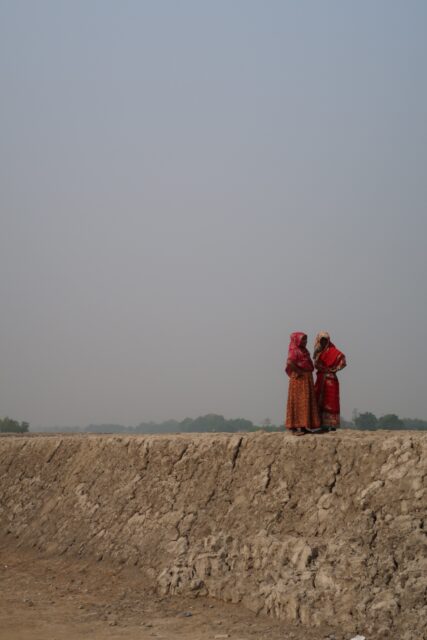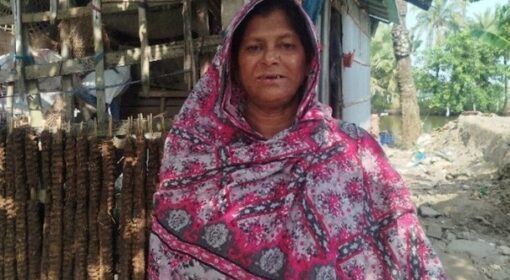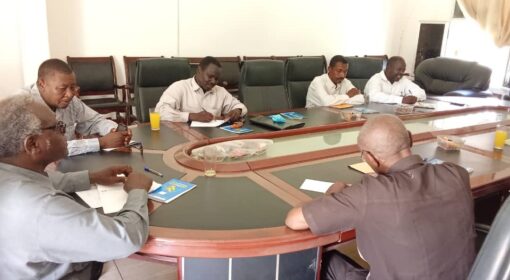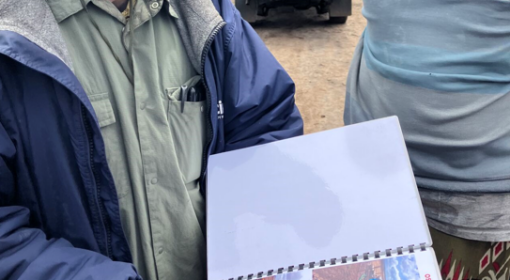by Hassan Abdullah Rafath (Uttaran), Hasna Heena Mahmud (Uttaran), Mst.Jannatul Naim

This blog is part of a dossier on locally-led adaptation, featuring insights and lessons from the Reversing the Flow (RtF) program. RtF empowers communities in Bangladesh, Burkina Faso, Ethiopia, Kenya, and Sudan to build climate resilience through direct funding and a community-driven, landscape approach.
The Soladana community in Bangladesh, located at under Paikgacha Upazila, Khulna District, is highly vulnerable to extreme weather events such as cyclones and storm surges. Situated outside the embankment, the community, consisting of 111 households, faces significant risks that threaten their homes, lives and livelihoods. The frequent cyclones, tidal surges, embankment breaching, result in severe damage, often washing away homes and placing the families in urgent need of assistance.
One of the most pressing challenges for the Soladana community is the low elevation of their homes. The plinth levels of houses are lower than the surrounding riverbeds, exacerbating the impact of tidal surges. During these events, floodwaters often reach 2-3 feet inside homes, damaging belongings and disrupting daily life. The repeated nature of these disasters makes recovery difficult, leaving the community in a constant state of vulnerability. The long-term effects of this continuous flooding hinder their ability to build resilience and adapt effectively.
Women’s Role in Locally-Led Adaptation
With the initiation of the RtF program, where funding goes directly to the community, the Soladana community gained an opportunity to take ownership of their adaptation strategies. A crucial outcome of this initiative has been the increased participation of women in decision-making processes. In community meetings held under the RtF program, women expressed their challenges and actively contributed to identify the priority actions based on their everyday struggles in this vulnerable landscape.
Women in the community highlighted the challenges they’re facing during extreme weather conditions. Unlike men, who often migrate for livelihood activities in the Sundarbans or nearby towns, women have no options but to remain at home with children, enduring prolonged periods in waterlogged conditions. Additionally, they emphasized the urgent need for access to safe drinking water, as salinity intrusion poses a significant health hazard.

Community-Led Solutions and Prioritization
Through collective discussions, community women uphold a strong sense of priority for their needs, identifying key adaptation measures such as: strengthening the current embankments – to mitigate the immediate risks of storm surges and flooding.
Water desalination plants – to address the pressing issue of salinity in drinking water.
Elevating the Ground/House Plinth- to protect themselves from waterlogging.
Beyond these priorities, women also have a long vision of piloting their activities to understand larger systemic issues, including financial planning and policy dialogues with government authorities. Their engagement in these discussions is crucial for securing long- term institutional support and ensuring a sustainable adaptation strategy.
Building Resilience and Strengthening Women’s Voices
Elder women in the community acknowledged the shift in power dynamics, noting that younger women now have a platform to voice their concerns and actively participate in restoring their landscape. The collaborative approach under the RtF program, facilitated by Uttaran, has provided a structured and effective space for women to influence decision-making processes.
The emphasis on gender inclusion in the RtF program underscores the importance of amplifying rural grassroots voices, particularly in vulnerable landscapes. When communities design and lead their own projects, they are more invested in maintaining them, ultimately contributing to a resilient and empowered future.




